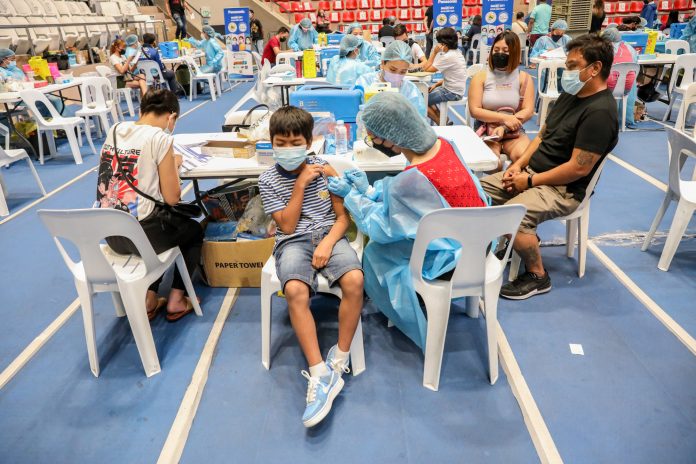Child rights group Salinlahi Alliance for Children’s Concerns expressed “extreme alarm” over a report that at least 202 children died in the recent spike in cases of COVID-19 in Central Visayas region.
“It’s really infuriating how the bungled pandemic response of the government led to the death of so many lives, including children,” said Eule Rico Bonganay, secretary general of Salinlahi Alliance for Children’s Concerns, in a statement released on February 5.
“While it is true that we’re confronting a highly transmissible Omicron variant, unnecessary deaths can easily be avoided if effective public health measures have been already put in place,” he said.
The regional office of the Department of Health in Central Visayas reported that at least 232 minors died from COVID-19 between December 2021 and January 2022.
Of those deaths, 202 occurred in January.
Nationwide, the health department reported that 69.2 percent of COVID-19 cases among the pediatric group (those 17 years and below) in January 2022 were children aged 0 to 11.
A total of 6,603 people have died from the coronavirus in Central Visayas since the pandemic began in 2020.
Bonganay said the government has failed to implement mass testing, which he said is “very critical” in rapid identification, isolation and treatment of positive COVID-19 patients.
“Actual COVID-19 infection among minors could be much higher than the official data being presented by the government,” claimed Bocanay.
“We have been receiving reports of children being deprived of access to testing and other health interventions despite suffering from COVID-19 symptoms. As a result, many of them resorted to self-medication without consulting physicians,” he said.
He said the continued refusal of the government to increase public spending on the health sector has “further exacerbated” the long-standing symptoms of the country’s weak health care system.









